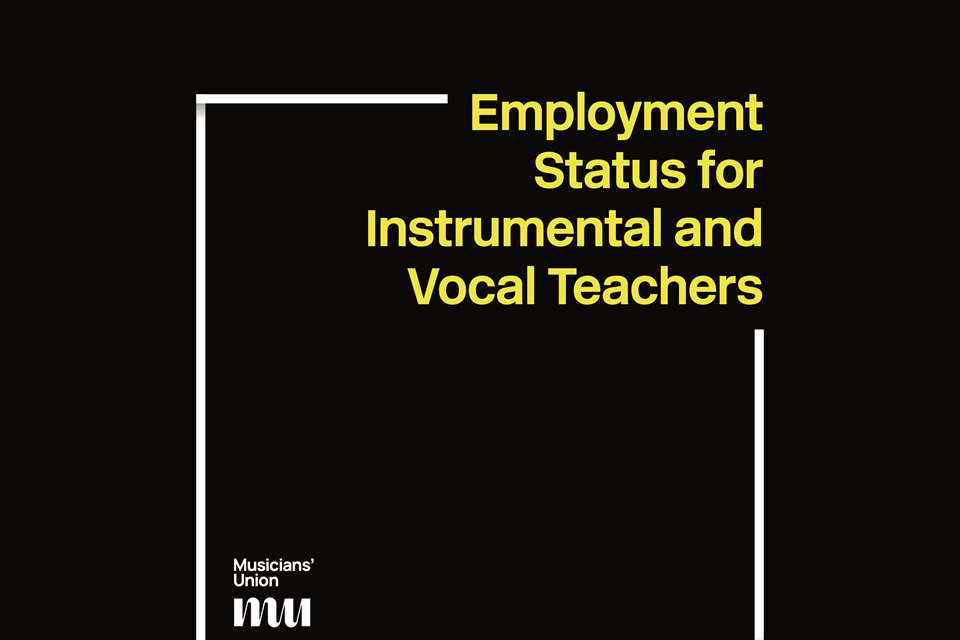ISM Column: Why employment status matters to music teachers
Nerys Owen
Wednesday, June 1, 2022
ISM senior legal adviser Nerys Owen shares valuable insight into the complex issue of employment status.

AndiaFaith/AdobeStock
Your employment status is the gateway to key legal rights at work. Employment status can be a complex minefield for many music teachers. To make matters even more complicated, the test used by HMRC to decide whether you are ‘self-employed’ for tax and national insurance purposes is not the same as the test used to decide what, if any, statutory employment rights you have at work. You can be lawfully paying all your tax and national insurance on a self-employed basis while at the same time being a worker with statutory rights, such as a right to holiday pay or to protection from discrimination at work.
Employee, worker and genuinely self-employed – what is the difference, and why does it matter?
Many teachers (including many ISM members) offer music tuition on a genuinely self-employed basis. They run their own business, contracting directly with parents or pupils, and setting their own hourly rates and other terms of business. These teachers have no employment rights because they are neither employees nor workers.
Similarly, many music teachers are employed under a contract of employment, working for organisations such as music services, schools, and conservatoires. Employees have the strongest legal protection, especially after two years of working. Broadly speaking, the more control an organisation exerts over you, the more likely you are to be an employee. One particularly strong indicator that you are probably an ‘employee’ is any contractual limit on what you can do once the contract has ended, for example, restrictions on teaching past pupils. You can be an employee even if you have no guaranteed hours, and even if your employment contract is not written down.
In the middle – between teachers who run their own business at the one end and employees at the other – is a group of music teachers who are ‘workers’. Workers have some important rights, such as a right to holiday pay, protection from discrimination and harassment, stronger health and safety protection, and the right to reasonable adjustments if they are disabled; but they miss out on important ‘employee’ rights that are linked to job security, such as protection from unfair dismissal and redundancy, or the ability to access different forms of statutory parental leave.
The contract document I have signed says I am a self-employed contractor – isn't that the end of the matter?
No. Broadly speaking, following the landmark Supreme Court ruling of Uber v Aslam (2021), when deciding whether someone qualifies for statutory employment rights, the employer's documents (such as a written contract asserting that the relationship is one of self-employment) must be disregarded. Instead, what matters is how the relationship operates day-to-day.
How would an employment tribunal decide whether I am a worker, as opposed to genuinely self-employed?
The legal test asks whether you must work personally for someone who is not your own client or customer.
Putting flesh onto the bones of this test, the only way to work out whether someone is likely to be a worker is to examine all the facts to see how the relationship works day-to-day. Thinking about music teaching in schools, here are some of the main factors an ISM legal adviser is likely to consider:
- Do you contract directly with your own pupils or parents? Do you invoice them yourself? Does any of the money pass through the school? Do you have a free hand in negotiating your own hourly rate, or does the school try to dictate this to you (and to your fellow VMTs)? A genuinely self-employed person would decide their own hourly rate without third party interference.
- If, for example, you have a clashing performance commitment, can you send another similarly qualified and experienced and DBS-checked teacher to take your lessons, without asking for permission from the head of music? Does this ever happen in practice?
- How much control does the school assert over how, when, and where you do your teaching work? Do you have to write reports or attend parents’ evenings? Do you have to undergo an annual performance appraisal? Do you have to comply with all the school policies and procedures; for example, following a dress code?
- How does the school promote your services, for example on its website or in its prospectus? Are music teachers held out in this publicity material as part of the school's workforce (for example, being described as ‘our teachers’)?
Employment status – and the rights that stem from that status – is a complex and difficult issue. ISM members with concerns can contact the ISM legal team for advice and access a range of resources on the ISM website.







